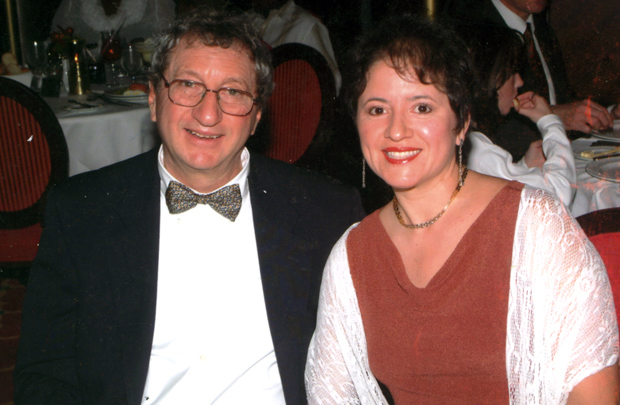Marcel Nimni, PhD, professor of surgery, biochemistry and molecular biology at the Keck School of Medicine of USC, recently donated $1 million to the Department of Surgery at the school to establish a laboratory to further research in tissue engineering and targeted drug delivery.
The gift honors the memory of his wife Fabiola Cordoba who died after a 6-year battle against pancreatic cancer, which included a therapy based on the approaches currently being expanded at USC. She was a pediatrician who worked in Nimni’s laboratory when he was director of surgical research at Childrens Hospital Los Angeles.
Nimni’s current research, prompted by Cordoba’s death, is aimed at specifically targeting cancer drugs to collagen capsules around pancreatic and other tumors to reduce systemic toxicity in patients. His generous gift will allow that research to continue at the Keck School.
“I became frustrated with the state of cancer research,” explained Nimni. “There’s only about a 2.5 percent survival rate difference between patients whose tumors are not resectable or metastatic and who either get or not get chemotherapy. This prompted me to try and change what is so often observed: Chemotherapy is killing the tumor cells but also killing the patient.”
Nimni has a long relationship with USC. He studied biochemistry at USC in the 1950s after graduating from pharmacy school in Argentina. He returned to do postdoctoral work in 1960 and joined the faculty shortly thereafter, holding professorships in several departments: medicine, orthopedics and craniofacial biology. He has a long interest in the study of collagen and connective tissue changes in rheumatology, cardiovascular diseases and orthopedics. He established one of the first tissue engineering courses in the country at USC.
Nimni added that he believes in giving back to the institution that gave him and his family so much over the years.“USC has been like my home. My kids went here, are both physicians, and I’m very grateful to USC,” he said. “I would like to encourage other faculty to give back for the training of those who will follow them and to extend their passion for research beyond retirement.”
— Hope Hamashige


